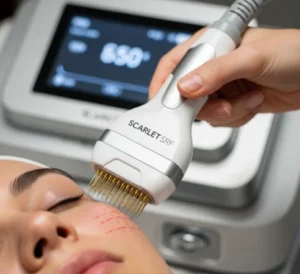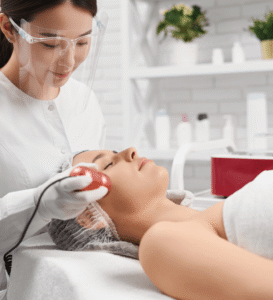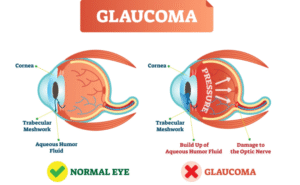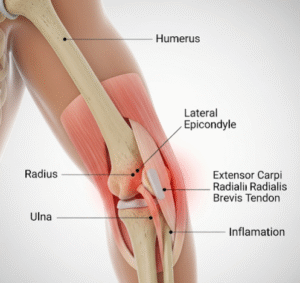Overview
Wells’ Syndrome, also known as eosinophilic cellulitis, is a rare inflammatory skin condition characterized by red, swollen, and itchy skin lesions that can resemble infections such as cellulitis. Unlike bacterial cellulitis, Wells’ Syndrome is not caused by an infection but is thought to be linked to an overactive immune response involving eosinophils, a type of white blood cell. It typically runs a chronic, relapsing course and can be challenging to diagnose.
What is Wells’ Syndrome?
Wells’ Syndrome is an idiopathic (unknown cause) dermatosis marked by recurrent eruptions of inflamed, red skin plaques that often resemble bacterial cellulitis. The condition involves infiltration of eosinophils into the skin, leading to inflammation and tissue damage. The plaques may appear on various body parts and often resolve spontaneously over weeks, sometimes leaving behind skin discoloration.
The hallmark of the disease under microscopic examination is the presence of “flame figures”, which are collagen fibers coated with eosinophilic granules.
Symptoms
The main symptoms of Wells’ Syndrome include:
- Sudden onset of red, swollen skin lesions (plaques)
- Itching or burning sensation in affected areas
- Lesions that resemble cellulitis but do not respond to antibiotics
- Blistering or fluid-filled bumps in some cases
- Lesions that evolve into hardened plaques or patches of skin discoloration
- Recurrence of lesions in different body areas over time
Causes
The exact cause of Wells’ Syndrome is unknown, but it is believed to be an abnormal immune reaction involving eosinophils. Potential triggers may include:
- Insect bites or stings
- Parasitic infections
- Medications, including antibiotics or nonsteroidal anti-inflammatory drugs (NSAIDs)
- Vaccinations
- Underlying conditions, such as leukemia, lymphoma, or autoimmune diseases
- Idiopathic (no identifiable trigger in many cases)
Risk Factors
Wells’ Syndrome is rare and can affect both adults and children, though middle-aged adults are more commonly diagnosed. Known risk factors include:
- A history of allergic conditions or asthma
- Exposure to drugs or environmental allergens
- Autoimmune or hematologic disorders
- Previous unexplained skin inflammations
Complications
While not typically life-threatening, Wells’ Syndrome can lead to:
- Misdiagnosis and unnecessary antibiotic use due to its similarity to cellulitis
- Psychological distress due to chronic or disfiguring skin lesions
- Skin discoloration or scarring in some cases
- Delayed treatment if not recognized early
- Rare progression to more severe eosinophilic conditions in patients with systemic disease
Prevention
Since the exact cause is unknown, there are no guaranteed methods to prevent Wells’ Syndrome. However, some strategies may help:
- Avoiding known triggers such as insect bites or specific medications
- Managing allergic or autoimmune conditions
- Early treatment of symptoms to prevent lesion progression
- Regular monitoring in individuals with a history of eosinophilic disorders
Treatment Options in Korea
South Korea offers comprehensive dermatological care for rare skin conditions like Wells’ Syndrome. Treatment is aimed at reducing inflammation, relieving symptoms, and preventing recurrence. Options include:
- Topical or oral corticosteroids – first-line treatment for inflammation
- Antihistamines – to reduce itching and allergic response
- Immunosuppressants or steroid-sparing agents – such as cyclosporine or methotrexate in chronic cases
- Dapsone or colchicine – for patients with frequent relapses
- Biopsy and histopathological confirmation – available in tertiary hospitals for accurate diagnosis
- Follow-up care and monitoring – provided by dermatologists at centers like Seoul National University Hospital and Samsung Medical Center
Korea’s advanced diagnostic facilities and personalized care approaches make it a reliable destination for managing complex skin disorders like Wells’ Syndrome.













